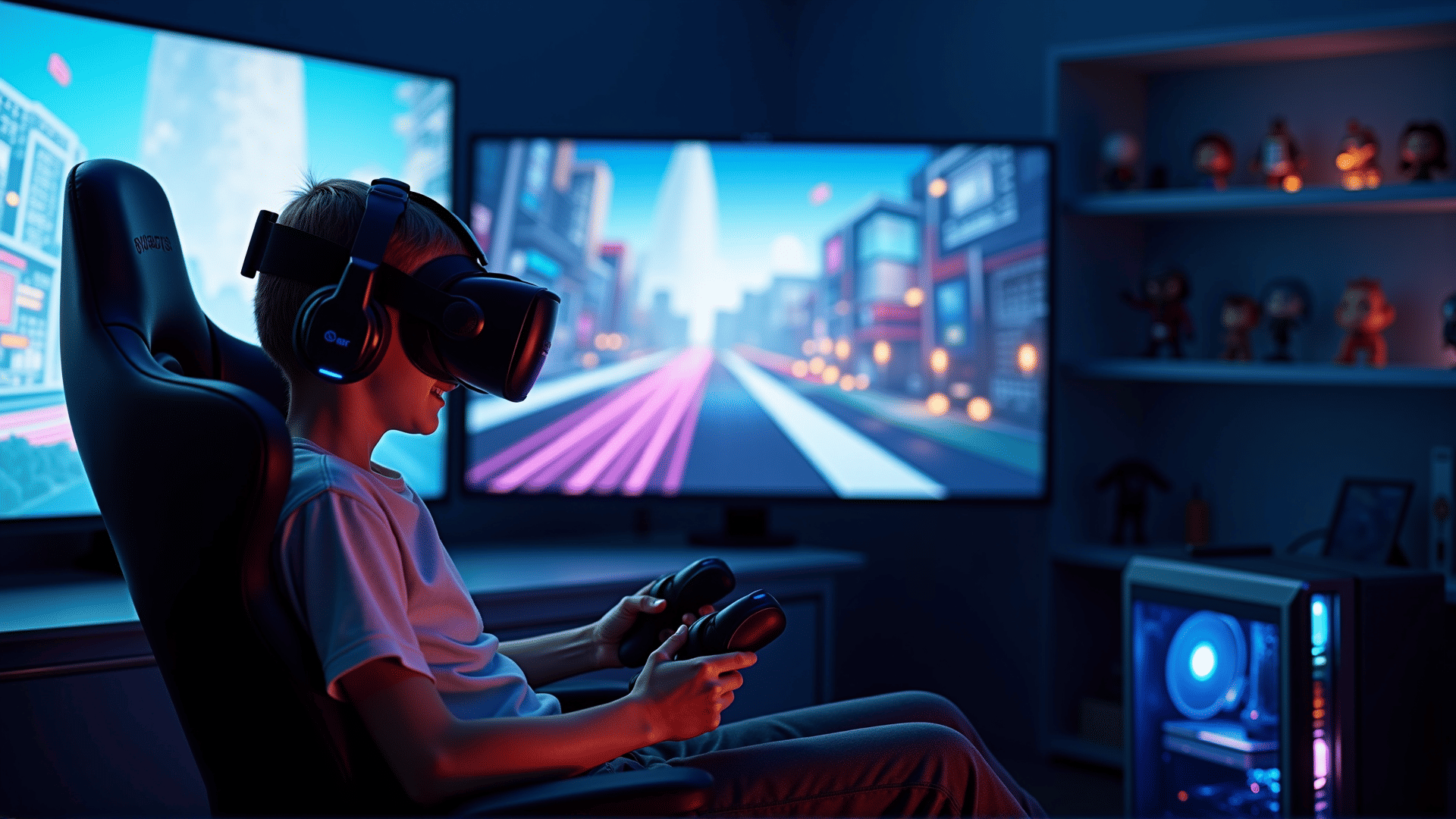Virtual reality (VR) is revolutionizing the gaming industry, offering players an unprecedented level of immersion and interaction. Gone are the days when gaming was confined to a screen and a controller; VR transports players into dynamic digital realms where the action surrounds them and every movement is mirrored in real time. This technological leap is not just changing how games are played, but also how they are designed and experienced.
At the heart of VR gaming is the ability to simulate realistic environments that engage multiple senses. Players find themselves fully enveloped in rich, three-dimensional worlds. From the moment they put on a VR headset, the boundaries of reality blur, and they are free to explore, interact, and engage with their surroundings in ways that were previously unimaginable. Whether it’s exploring outer space, diving deep into oceanic trenches, or battling mythical creatures, VR offers an experience far beyond traditional gaming platforms.
One of the most significant advances in VR technology is the development of more intuitive and responsive controllers. These devices track hand and finger movements, allowing players to manipulate objects and interact within the virtual environment more naturally. This progression reduces the barrier between the player and the game world, providing a seamless experience where actions in the physical world have direct consequences in the digital one.
Moreover, VR gaming is becoming increasingly social. Multiplayer VR platforms enable friends to meet and play together in these virtual environments, regardless of their physical location. This aspect of VR eliminates geographical boundaries, bringing people together in immersive experiences that feel personal and real. Interactive gaming experiences are becoming more collaborative and competitive, with players joining virtual teams or competing against each other in expansive multiplayer arenas.
The implications of VR technology go beyond mere entertainment; it has opened up new realms for storytelling and education. Developers are crafting intricate narratives that players navigate, allowing them to make choices that affect the story’s outcome, making each gaming session unique. In educational settings, VR is being used to simulate historical events or scientific phenomena, offering students a more engaging and interactive way to learn.
Despite its rapid advancement, VR gaming is not without challenges. High costs and the need for advanced hardware can limit accessibility for many potential users. However, as technology continues to evolve, these barriers are gradually lowering, with more affordable and user-friendly options being developed. Moreover, addressing issues like motion sickness and creating more comfortable and ergonomic devices are ongoing priorities for developers.
In conclusion, VR gaming is transforming the gaming landscape, ushering in a new era of player engagement and immersion. The ability to step inside virtual worlds and interact with them as though they were real is a testament to technological progress, and it signals a future where gaming is not just a pastime but an experience. As developers continue to push the boundaries of what’s possible, the potential for VR in gaming, education, and beyond is vast and exhilarating. Players around the world are discovering that with VR, the only limit is their imagination.
